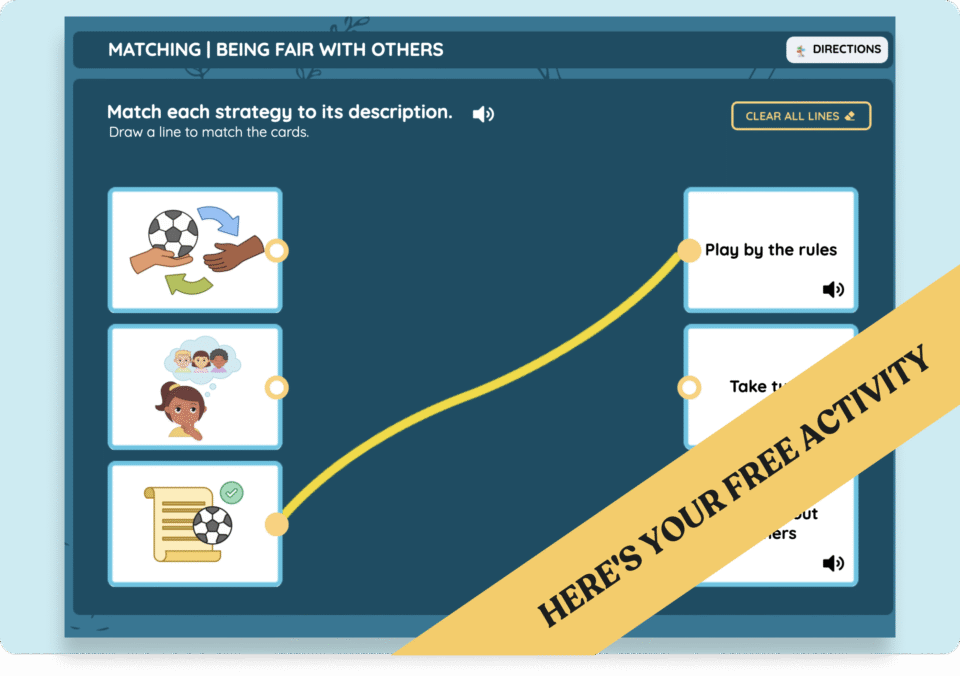Teaching Students to Be Mindful of Others in Shared Spaces
Get free social skills materials
No-prep lessons on self-regulation, emotional recognition, conversation skills, and more.
Sign up hereIntroduction
As educators, it is crucial to teach our students the importance of being mindful of others, especially in shared spaces like classrooms. By incorporating principles of Social-Emotional Learning, we can help students develop empathy, self-awareness, and social skills. In this blog post, we will discuss an easy-to-implement, no-prep activity, as well as discussion questions and related skills to further develop students’ understanding of the concept.
No-Prep Activity
This activity, called “The Silent Challenge,” requires no preparation or materials and can be done in any shared space. It is designed to help students understand the impact of their actions on others in the same environment.
- Ask the students to sit quietly in their seats and observe the room for one minute. During this time, they should pay close attention to the sounds and actions of their classmates.
- After the minute has passed, have the students close their eyes and reflect on what they observed.
- Next, instruct the students to talk amongst themselves for a minute, discussing any topic they choose.
- Once the minute is over, ask the students to close their eyes again and reflect on the difference in the environment.
- Finally, lead a group discussion about the impact of noise and actions on their ability to concentrate and how being mindful of others can create a more positive shared space.
Discussion Questions
Use these questions to stimulate further discussions among your students:
- How did the noise and actions of others affect your ability to concentrate during the activity?
- What are some ways you can be more mindful of others when sharing a space?
- What are some signs that others might be bothered by your actions or noise level?
- How can you communicate your need for quiet or space to others in a respectful way?
- Why is it important to be aware of others’ feelings and needs in shared spaces?
Related Skills
Developing the ability to be mindful of others in shared spaces is just one aspect of Social-Emotional Learning. Other related skills for students to practice include:
- Empathy: Understanding and sharing the feelings of others.
- Active Listening: Paying close attention to what others are saying and responding thoughtfully.
- Self-Awareness: Recognizing one’s own emotions, strengths, and weaknesses.
- Respect: Treating others with kindness and consideration.
- Conflict Resolution: Addressing disagreements and finding solutions that benefit everyone involved.
Next Steps
Teaching students to be mindful of others in shared spaces is an essential skill for creating a positive learning environment. To further engage your students in Social-Emotional Learning, consider incorporating additional activities and lessons. To access free sample materials, including activities and lessons on a variety of topics, sign up at Everyday Speech.

